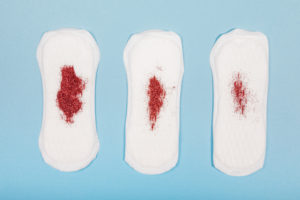Bleeding after sex can be worrying, but there can be various reasons behind it. In this blog, we will explore the potential causes of bleeding after sex, available treatment options, and discuss when you should seek professional medical advice.

Common Causes of Post-Sexual Bleeding
1. Trauma or Friction: The most common cause of bleeding after sex is trauma or friction during intercourse. This can happen due to insufficient lubrication, intense sexual activity, or rough handling.
2. Infections: Sexually transmitted infections (STIs) or other genital infections can lead to inflammation and bleeding. Conditions like chlamydia, gonorrhoea, or pelvic inflammatory disease may cause bleeding.
3. Cervical Issues: Conditions affecting the cervix, such as cervical ectropion (when the soft cells on the inside of your cervix begin to grow on the outside of the cervix), polyps, or inflammation, can result in bleeding after sex.
4. Vaginal Dryness: Insufficient lubrication can cause friction and irritation, leading to micro-tears and bleeding. This may be more common in postmenopausal women or those experiencing hormonal changes.
5. Menstrual Cycle: Engaging in sexual activity during certain phases of the menstrual cycle can lead to bleeding, especially if the cervix is more prone to irritation during these times.
Treatment Options
1. Improved Lubrication: If friction is identified as the cause, using water-based lubricants can help reduce irritation and minimise the risk of bleeding.
2. STI Testing and Treatment: If an infection is suspected, it is crucial to seek medical attention promptly. Testing and appropriate treatment of STIs can prevent further complications.
3. Hormonal Therapy: In cases of hormonal imbalances leading to vaginal dryness, hormonal therapy may be recommended. This could include local oestrogen therapy for postmenopausal women.
When to Seek Medical Advice
While some cases of post-sexual bleeding may resolve on their own or with simple interventions, consider consulting a healthcare provider if:
1. Bleeding Persists: If bleeding occurs consistently after sexual activity, it is important to see a healthcare professional who will examine your cervix to identify the underlying cause and provide appropriate treatment.
2. Accompanied by Other Symptoms: If bleeding is accompanied by pain, unusual discharge, or other symptoms, it may indicate a more serious issue that requires prompt evaluation.
3. Pregnancy Concerns: If you are pregnant or trying to conceive and experience post-coital bleeding, it’s advisable to consult with a healthcare provider to rule out potential complications.
Conclusion
Bleeding after sex can be alarming, but usually it’s nothing to worry about. If the bleeding persists, or it happens every time you have sex, open communication with your healthcare provider is essential.


